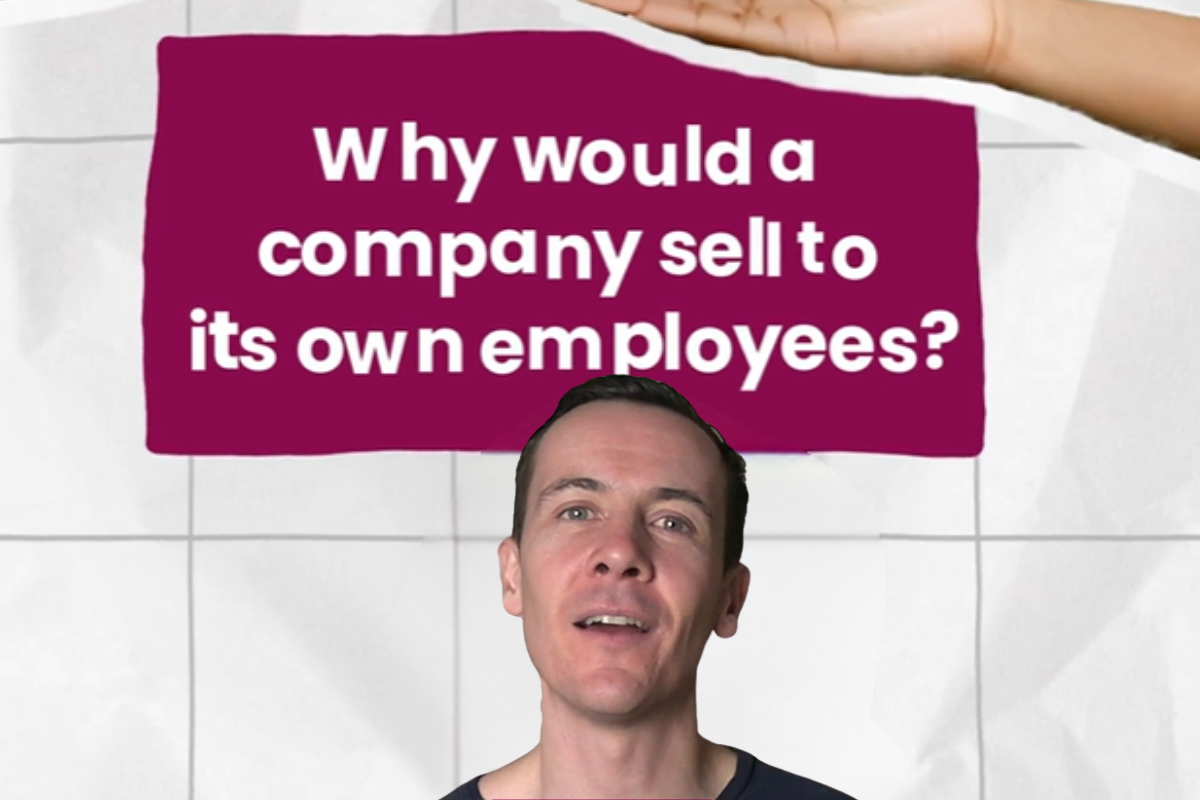TORONTO, May 8, 2024 – Last week, federal Minister of Finance Chrystia Freeland introduced the government’s 2024 Budget Bill, which contains exciting new updates about their made-in-canada employee ownership strategy. The Canadian Employee Ownership coalition (CEOC) is thrill ed that the government has introduced a new tax incentive that will level the playing field with competing succession options and lead to the widespread adoption of employee ownership in Canada.
“This new incentive, combined with the government’s recently created Employee Ownership Trust structure, is poised to create tens of thousands of employee-owners over the next few years said Jon Shell, a member of the CEOC’s Steering Committee.
This policy initiative comes at a critically important time. Over the next decade, 76% of Canadian business owners intend to retire, and the vast majority have no succession plan in place.
The creation of an Employee Ownership Trust and accompanying tax incentive will, for the first time, provide business owners with a viable alternative to selling their businesses to intemational private equity firms or competitors.
“This is smart business” said Tiara Letoumeau, CEOC Steering committee member. “With every sale to an Employee Ownership Trust, we’re increasing the likelihood that companies stay Canadian-owned, remain resilient in the face of economic turbulence, and provide meaningful wealth for working Canadians.
Employee Ownership Trusts are proven public policy. In the U.S., where these policies have been in place since the 1970s, 14 million American workers are already sharing in $2.1 trillion of wealth. Since the U.K. introduced these policies in 2014 it has witnessed rapid adoption, with more than 1,650 companies becoming employee-owned.
“As the CEO of an employee-owned company in a small town, I have seen firsthand what a difference it makes in culture, purpose and performance.” said Chad Friesen, CEO of Friesens Corporation, and member of the CEOC Steering Committee. With these policies in place, the CEOC looks forward to working with governments across the country to support substantial growth in employee ownership.
“Employee Ownership Trusts (EOTs) are proven public policy. In the U.S., where these policies have been in place since the 1970s, 14 million Americans workers are already sharing $2.1 trillion of wealth.”
About Social Capital Partners
Who owns the economy matters. Social Capital Partners believes working people deserve a fighting chance to build economic security and wealth. A Canadian nonprofit organization founded in 2001, we undertake public policy research, invest in initiatives and advocate for ideas that broaden access to wealth, ownership and opportunity, and that push back against extreme economic inequality. To learn more, please connect with us on LinkedIn or Bluesky or visit socialcapitalpartners.ca.
For more information, or to arrange an interview, please contact:
Katherine Janson
Director of Communications
Social Capital Partners
647-717-8674
katherine@socialcapitalpartners.ca
Share with a friend
Related reading
Watch the video: Why do Canadians work so hard and get so little?
Low productivity means lower wages and a lower standard of living. Canada does need to boost productivity—but we keep trying the wrong things. Watch SCP CEO Matthew Mendelsohn explain the productivity conversation Canada actually needs to have.
Market study submission: Competition in financing for Canada’s SMEs
Small- and medium-sized businesses (SMEs) face significant barriers to accessing capital and we believe that the lack of competition in the banking sector is one of several important contributing factors. We provided comment on the Competition Bureau's upcoming market study on SME financing because we believe that unlocking capital for SMEs and entrepreneurs will strengthen the Canadian economy, bolster our sovereignty and provide more Canadians with pathways to building wealth. We look forward to seeing how the evidence collected will help inform policymakers interested in tackling this issue.
Watch the video: Why would a company sell to its employees?
Canada is facing a $2-trillion business handoff. What if employees owned more of it? In this video, our Director of Policy Dan Skilleter explains why a company would sell to its own employees, how it happens and who stands to benefits. Spoiler alert: employee-owned companies are shown to be 8-12% more productive, share more wealth with their workers, keep businesses Canadian-owned and shore up the resilience of local communities and the broader economy.


